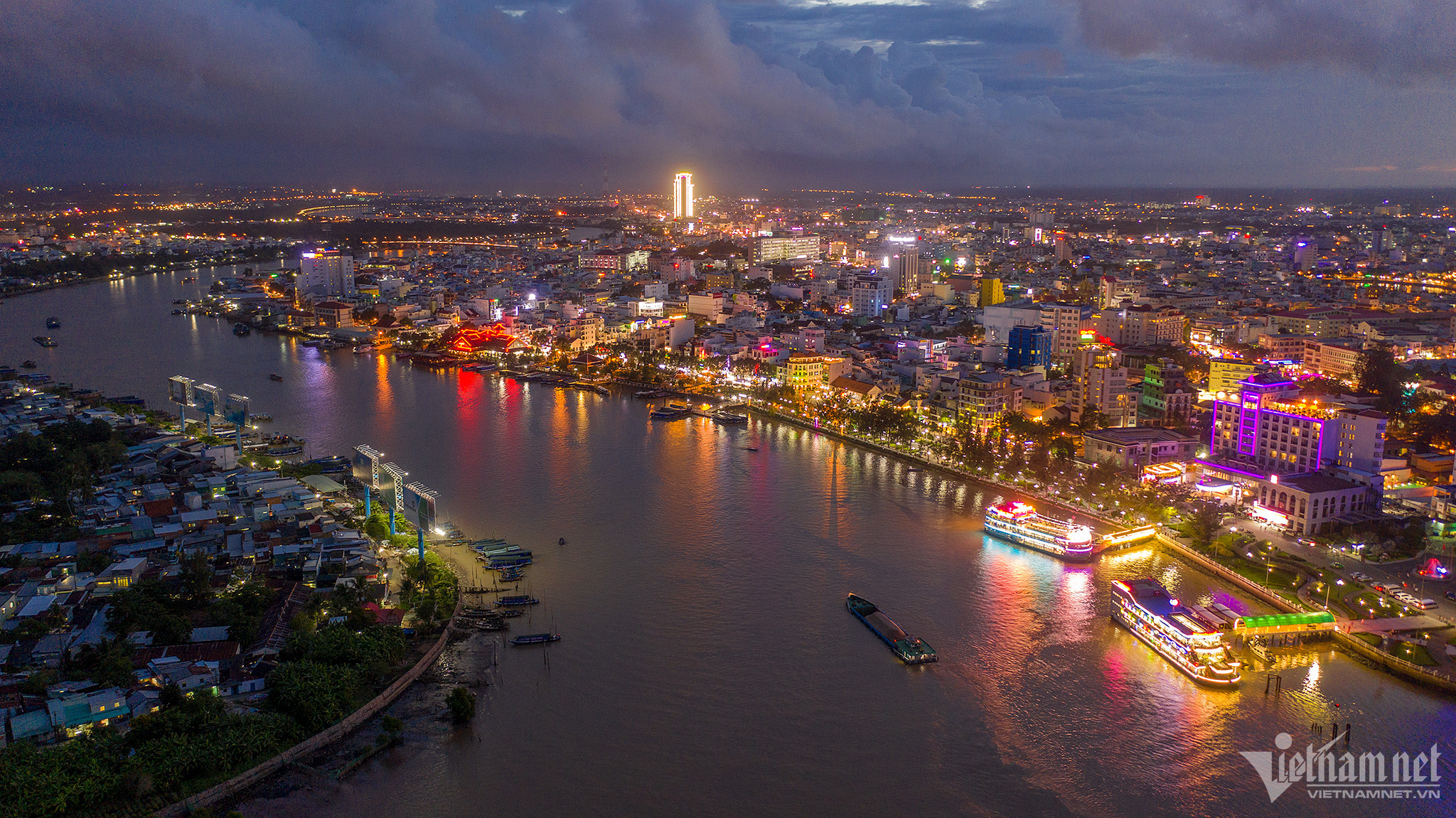
Can Tho is the major city in the Southwest region. It is adjacent to branches of the Hau River, forming an urban riverside infrastructure.
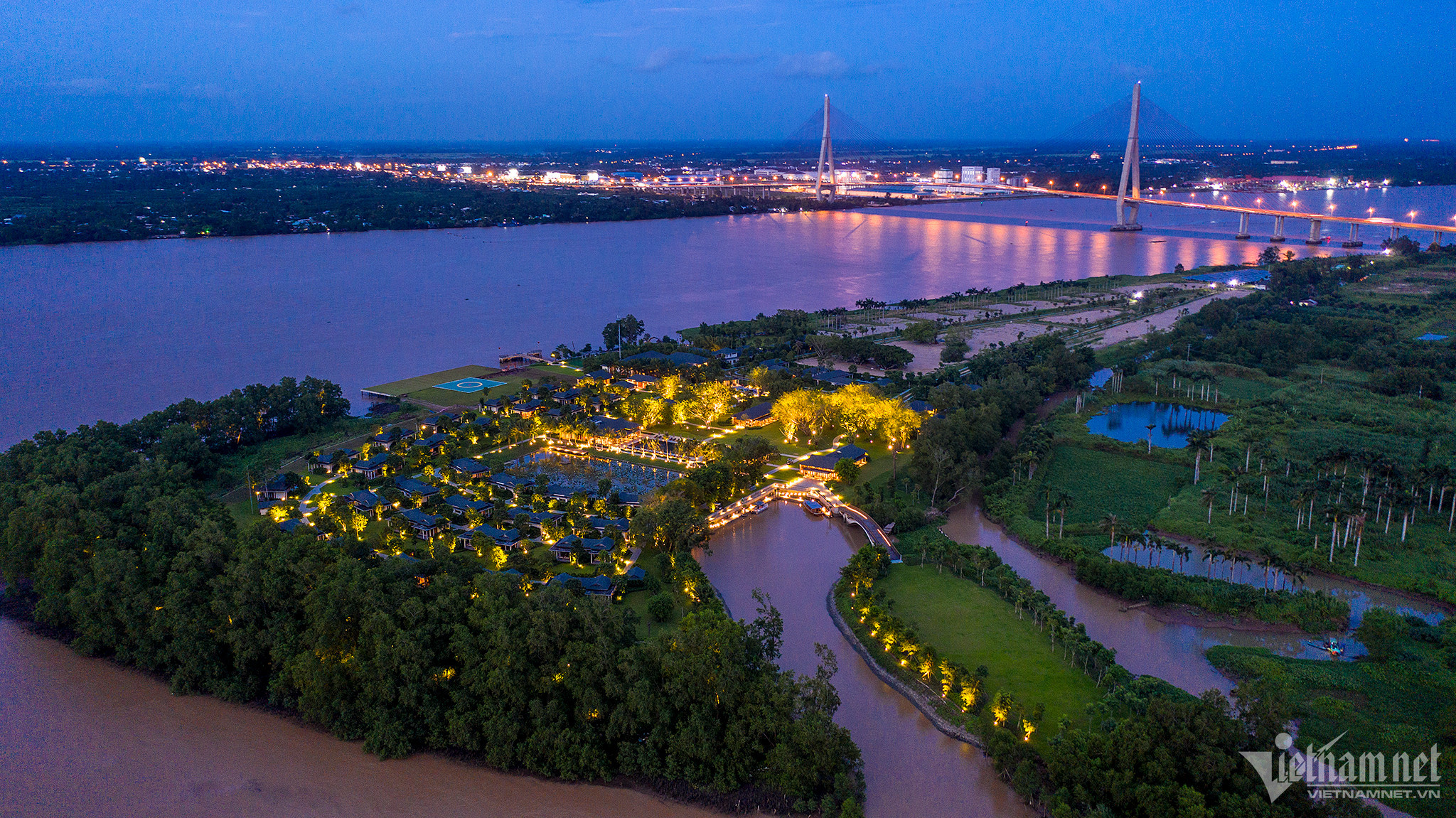
Can Tho was ranked 4th in the list of nine cities with the most beautiful canal systems in the world by the US magazine Departures.
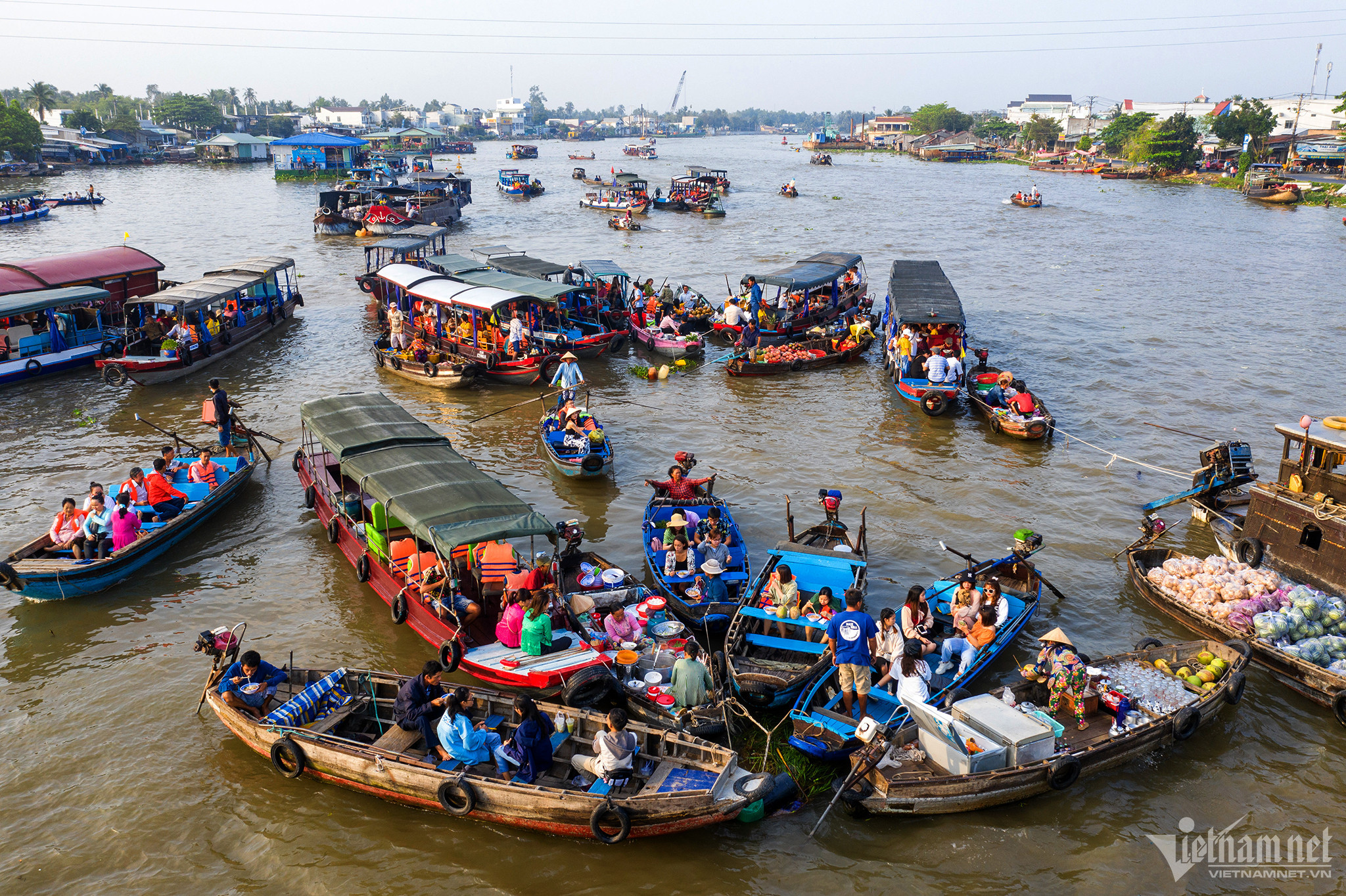
Cai Rang floating market in Can Tho City was recognized as a National Intangible Cultural Heritage of Vietnam in 2016. This is the largest and busiest floating market in the southwestern region of Vietnam, attracting large numbers of tourists.
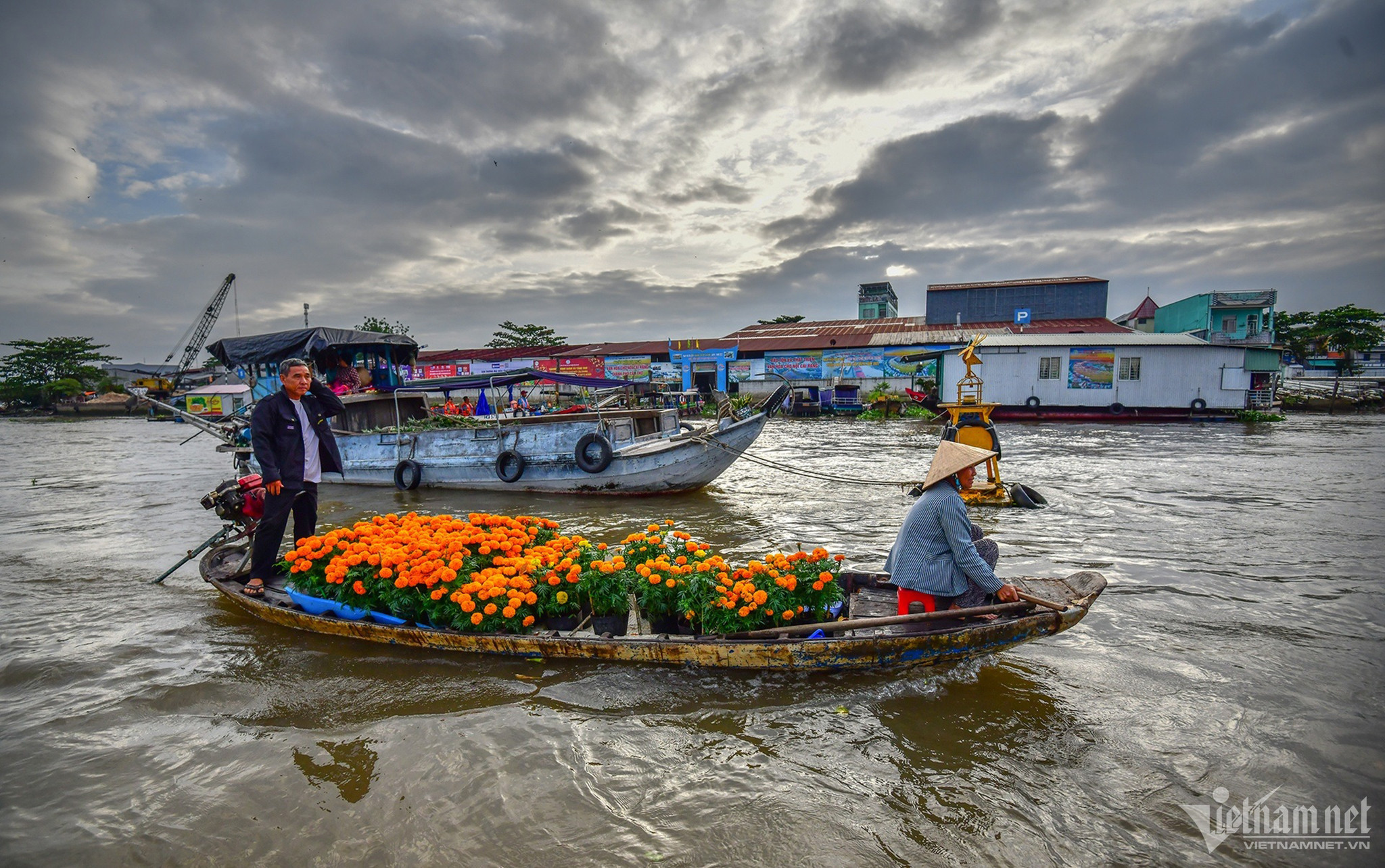
The life on boats in Can Tho.
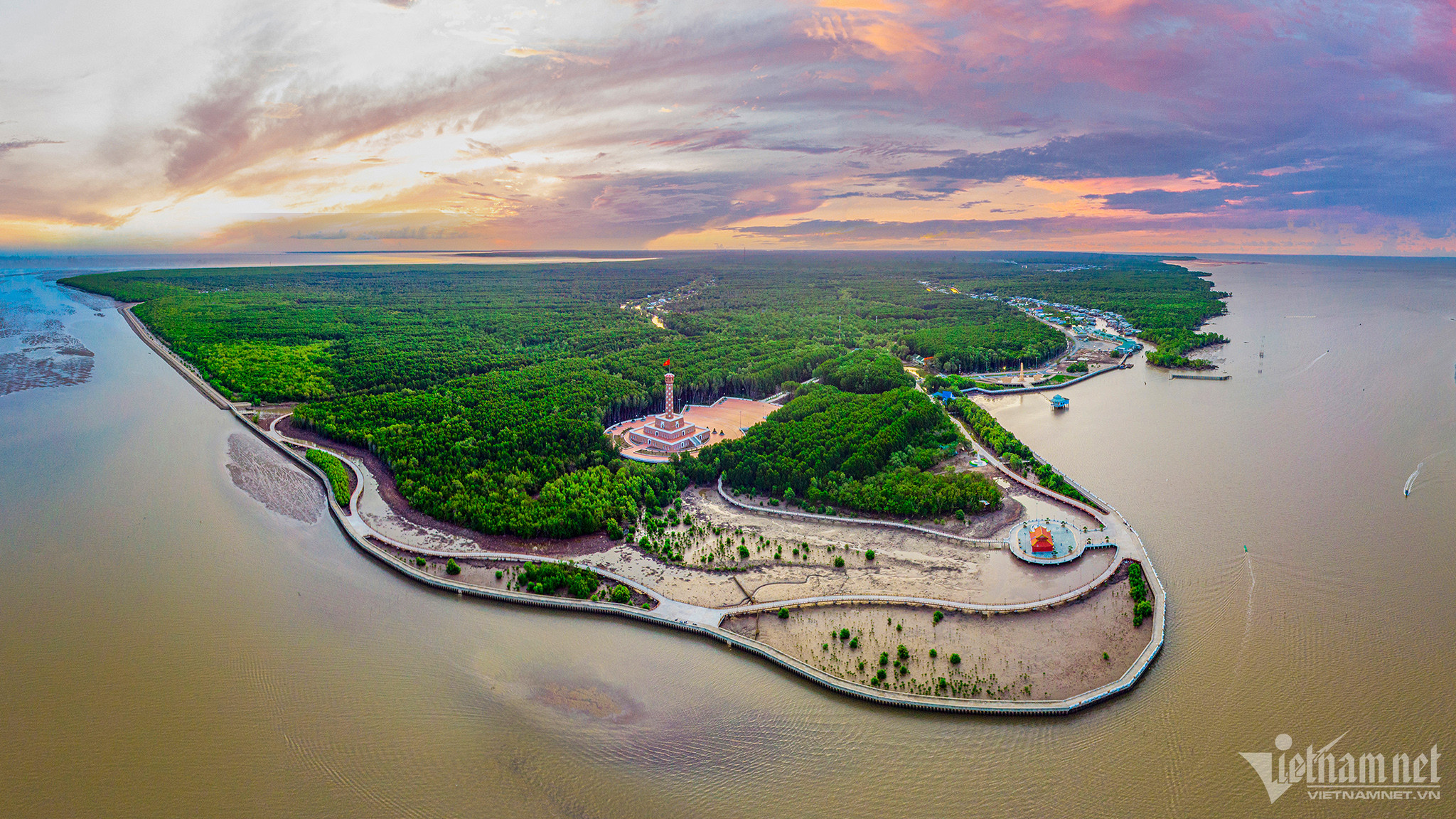
Dat Mui in Ca Mau province is a special symbol of the southwest region. This is the last point (mainland) of the country. Visitors can experience the saltwater wetland habitat with rich flora and fauna. This is where people can watch the sunrise and sunset at the same location.
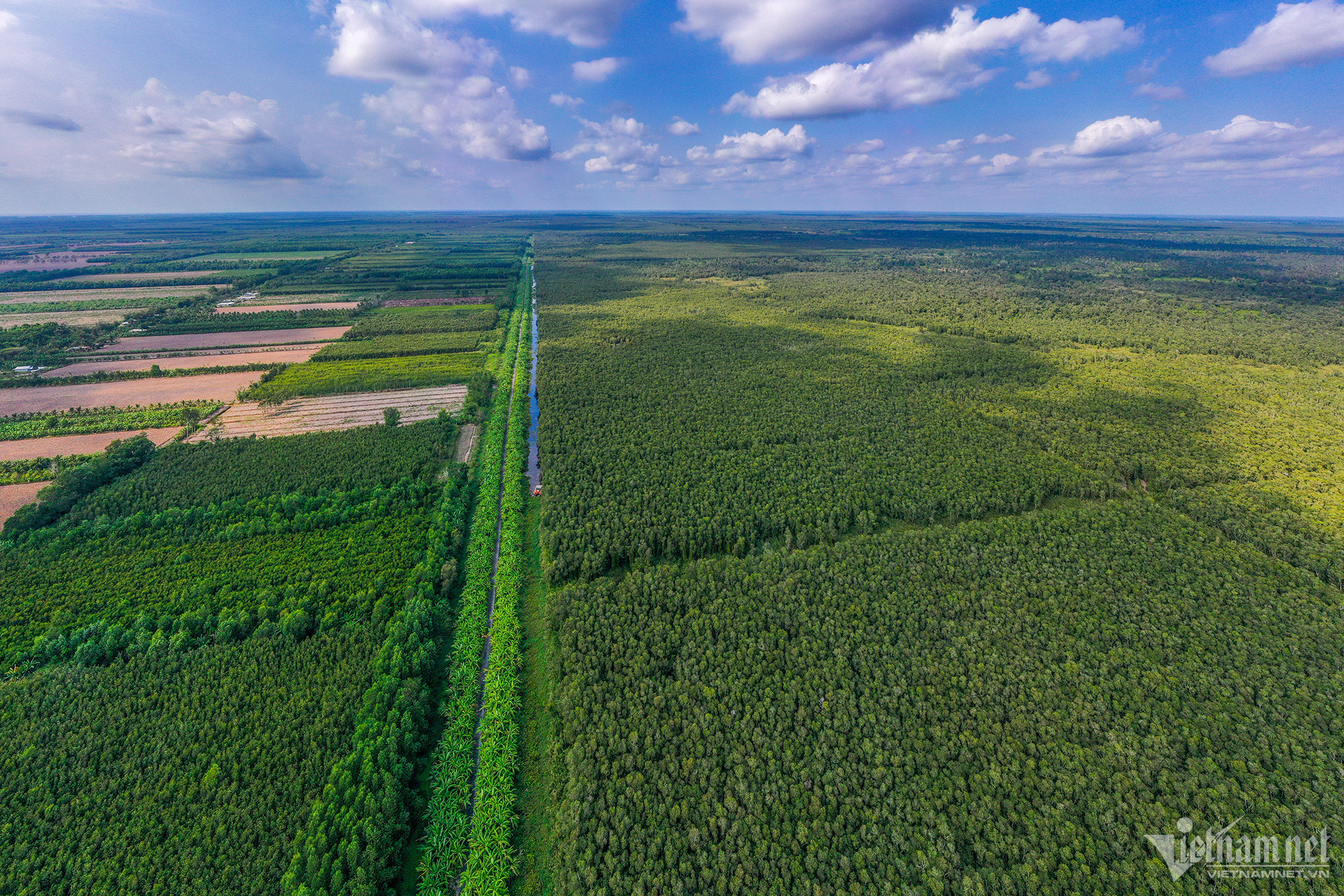
U Minh Ha Melaleuca Forest is located in the districts of U Minh and Tran Van Thoi (Ca Mau), with an area of about 35,000 hectares.
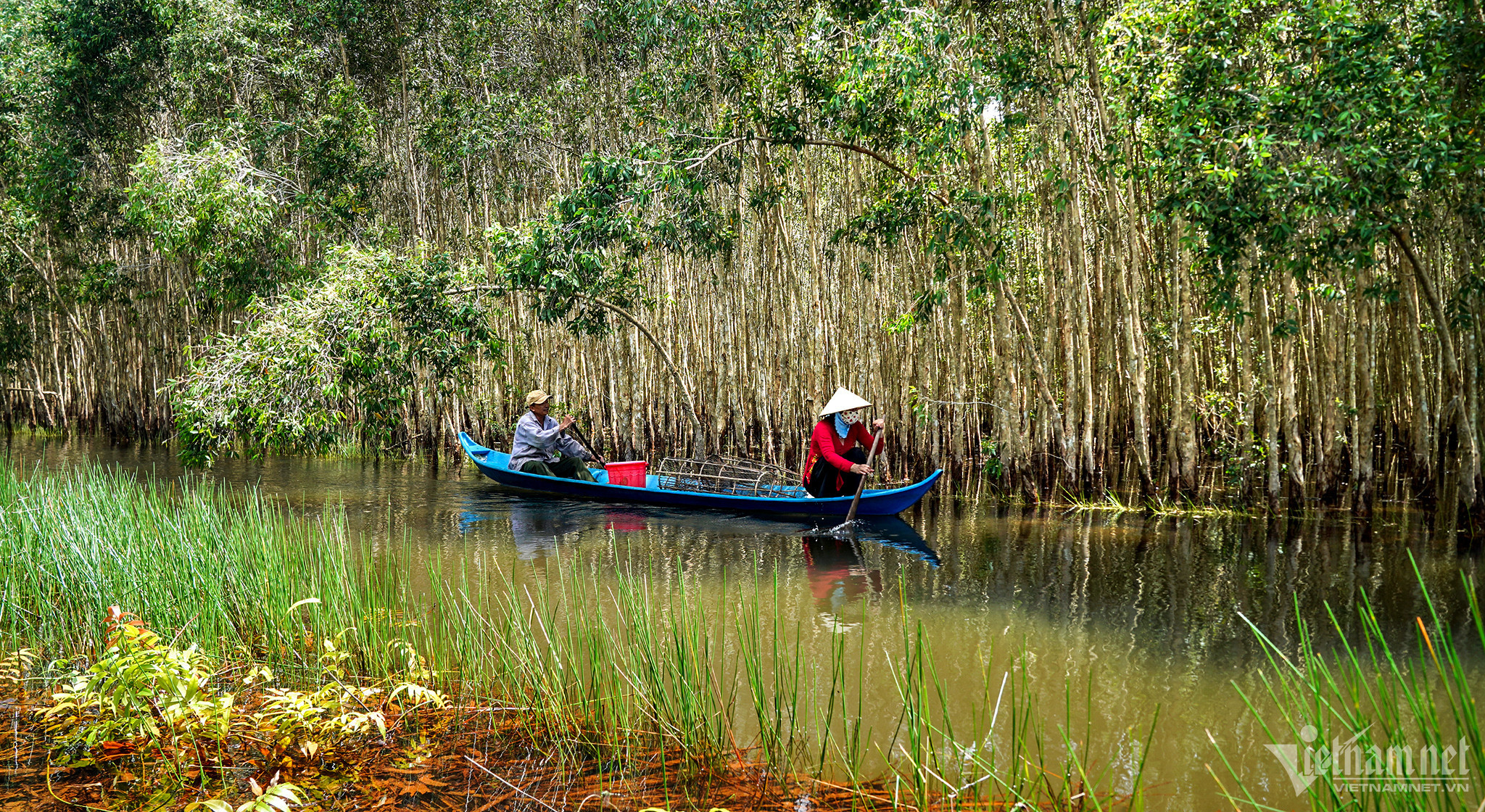
In recent years, local people have focused on exploiting the beauty of the forest landscape for eco-tourism development.
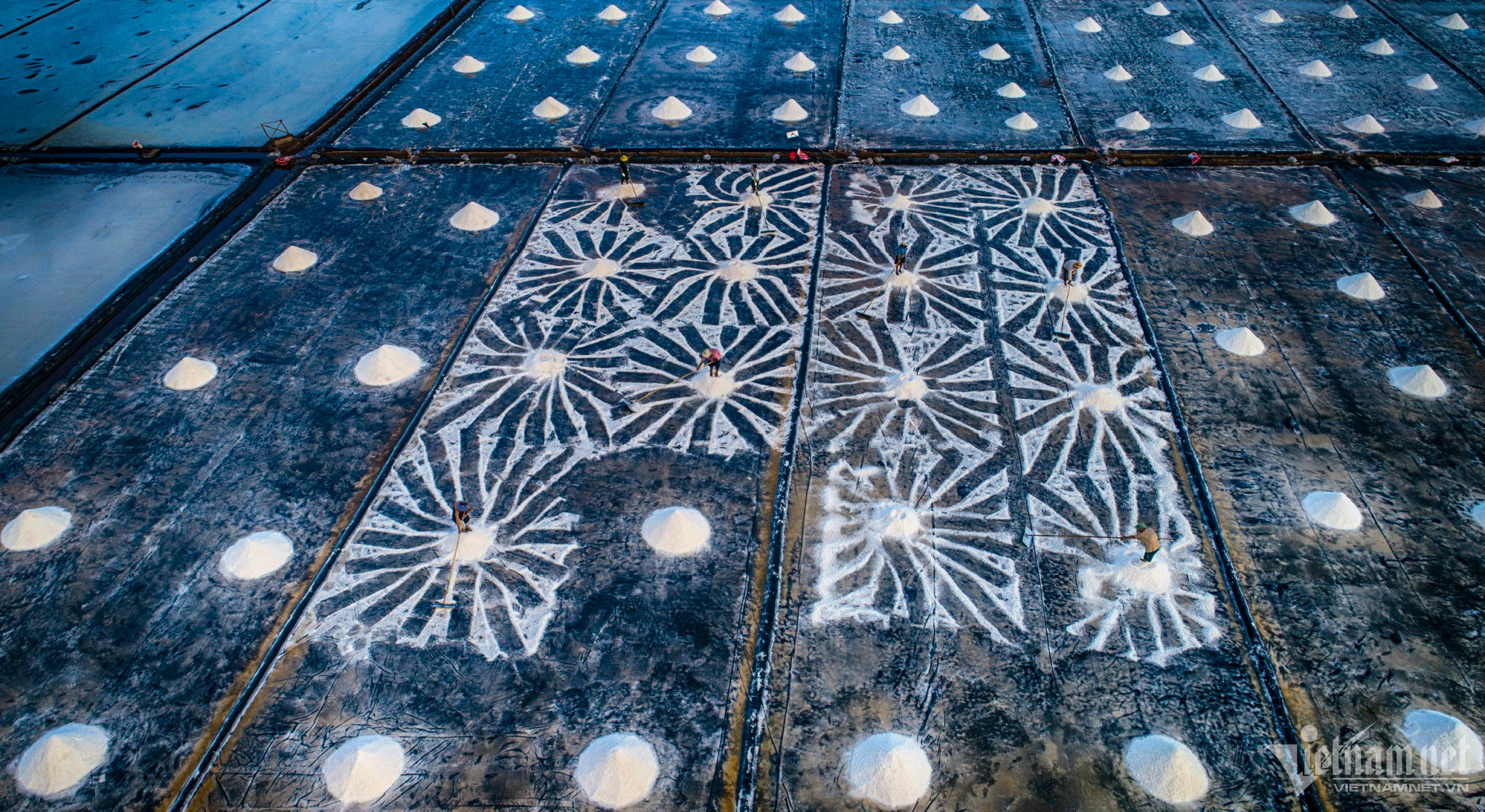
Bac Lieu is a coastal land with white salt fields. The province has about 1,500 hectares of salt fields, mainly in the districts of Dong Hai and Hoa Binh. Salt making has existed for 100 years in this land.
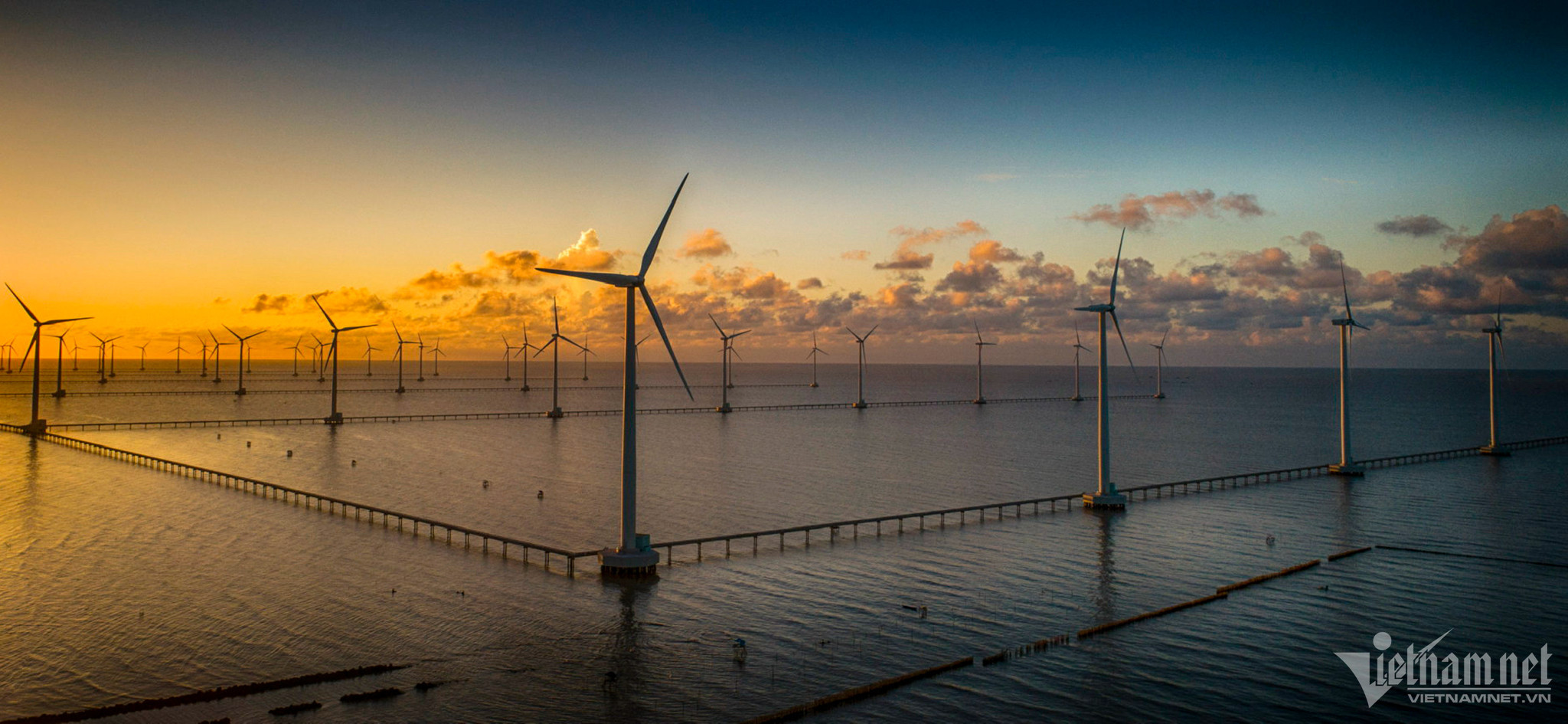
The wind power field in Vinh Trach Dong commune, Bac Lieu city has become a popular tourist site in Bac Lieu province.
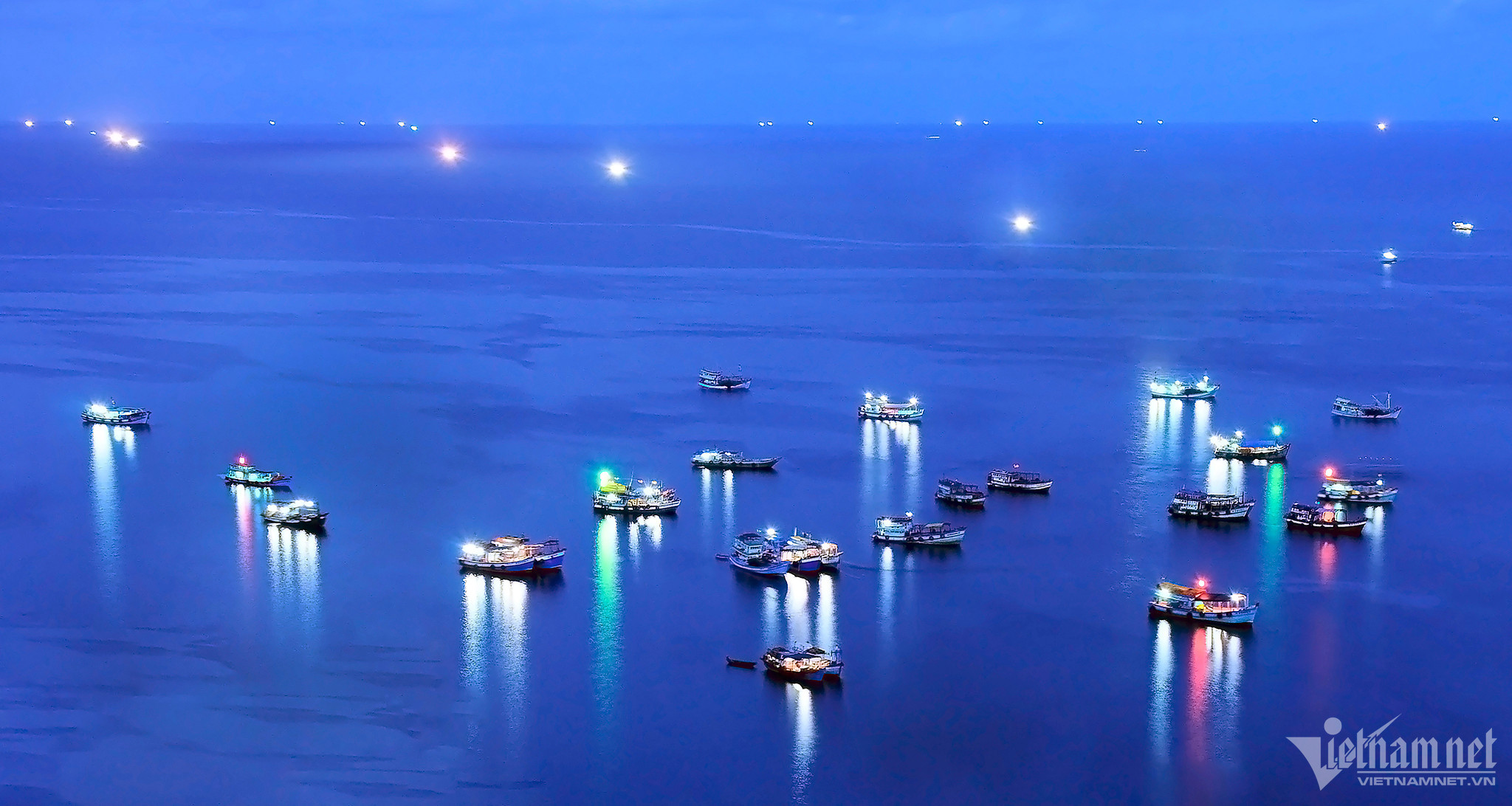
Many provinces and cities in the southwestern region such as Kien Giang, Ca Mau, Bac Lieu... have big fishing fleets. Watching fishing boats with shimmering lights at night is an interesting experience for many tourists.
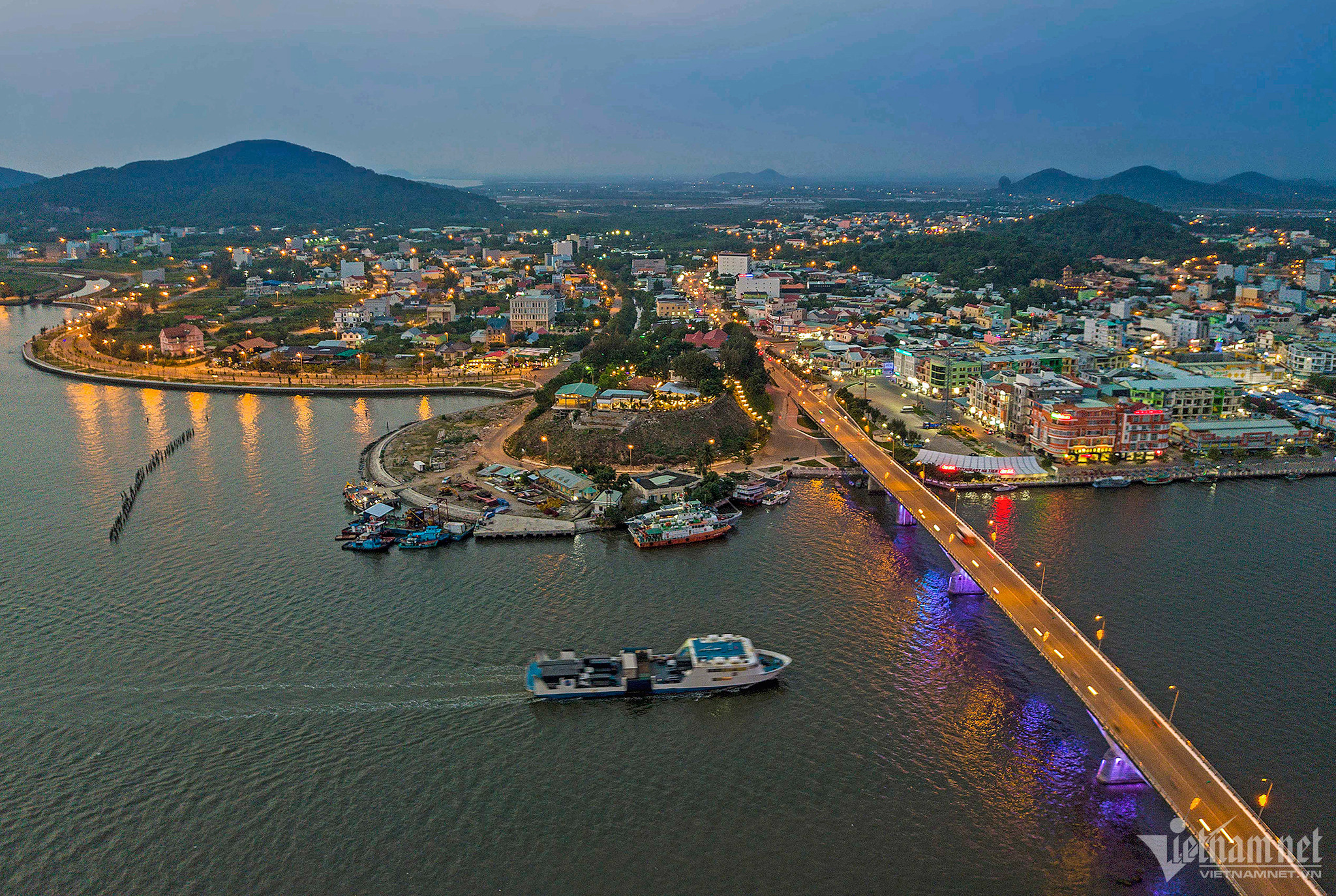
Kien Giang has great potential for sea tourism. Ha Tien (in the photo), Phu Quoc, and Rach Gia are very popular tourist destinations in Kien Giang. Ha Tien city - which is adjacent to Cambodia - was established in 2018.
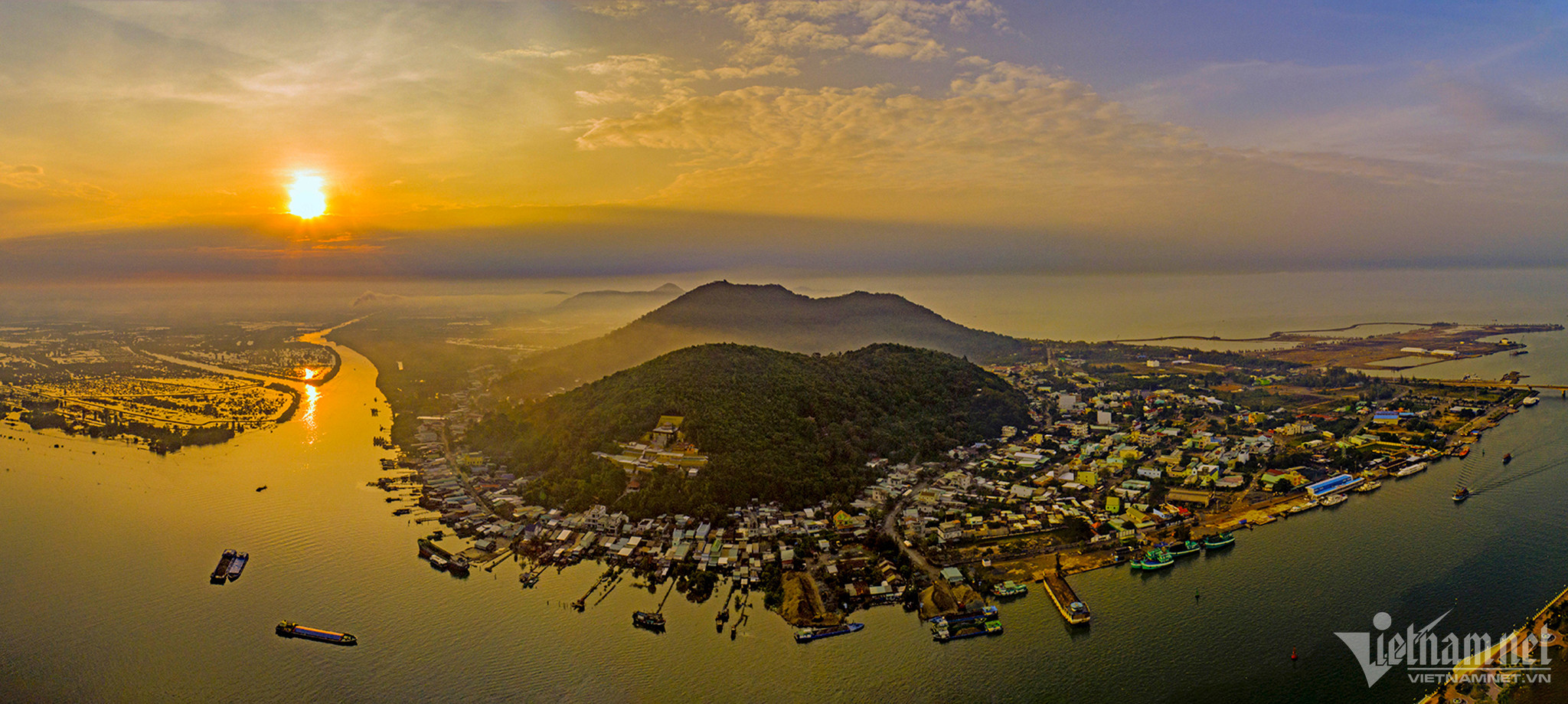
To Chau in Ha Tien city in the morning light. Photo: Truong Anh Dung.
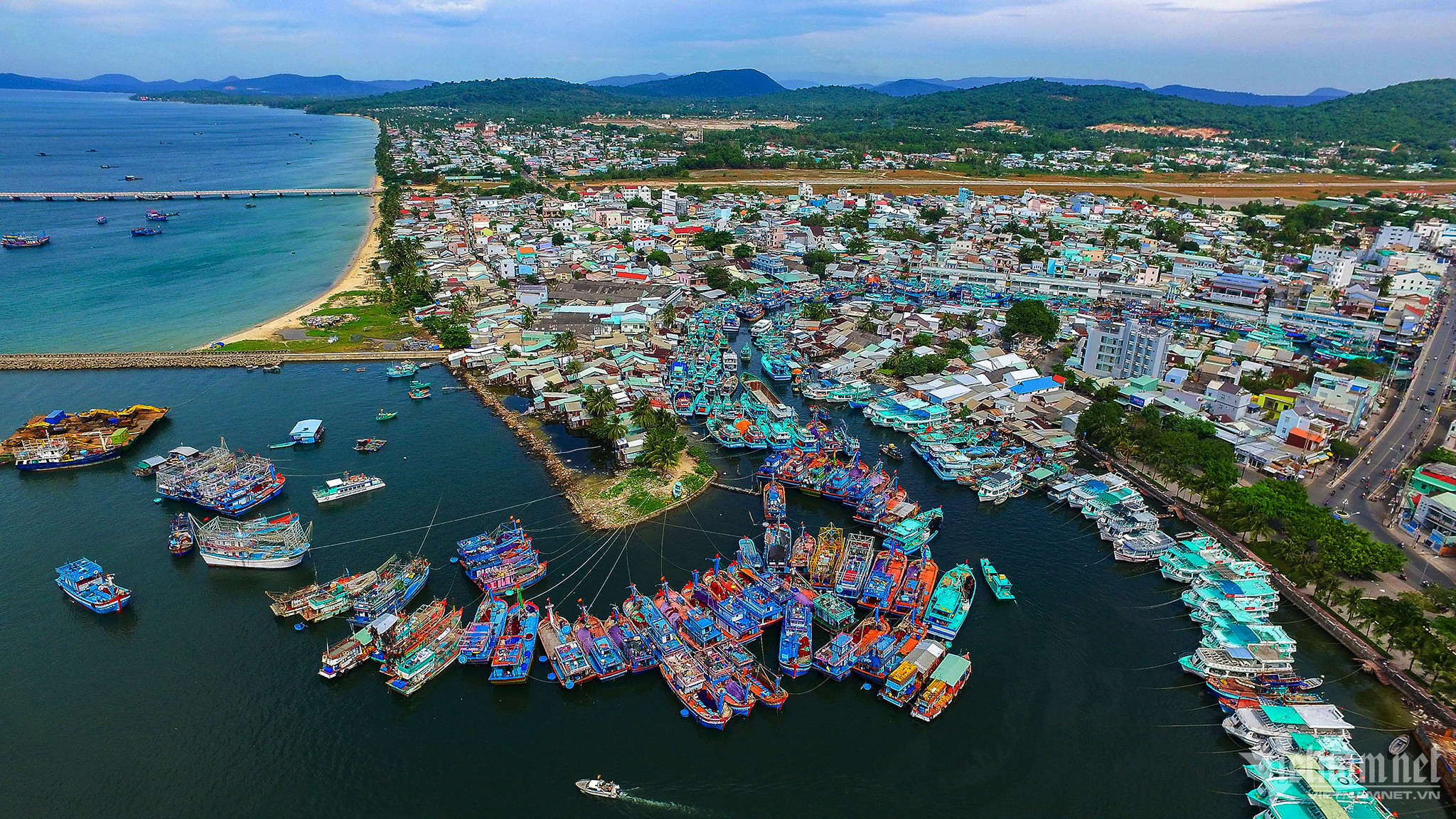
Phu Quoc is a famous tourist site, attracting the largest number of tourists in the Southwest region. The island city serves an average of 5 million visitors a year. This place is known as "Pearl Island" for its beautiful natural landscape and great potential for tourism.
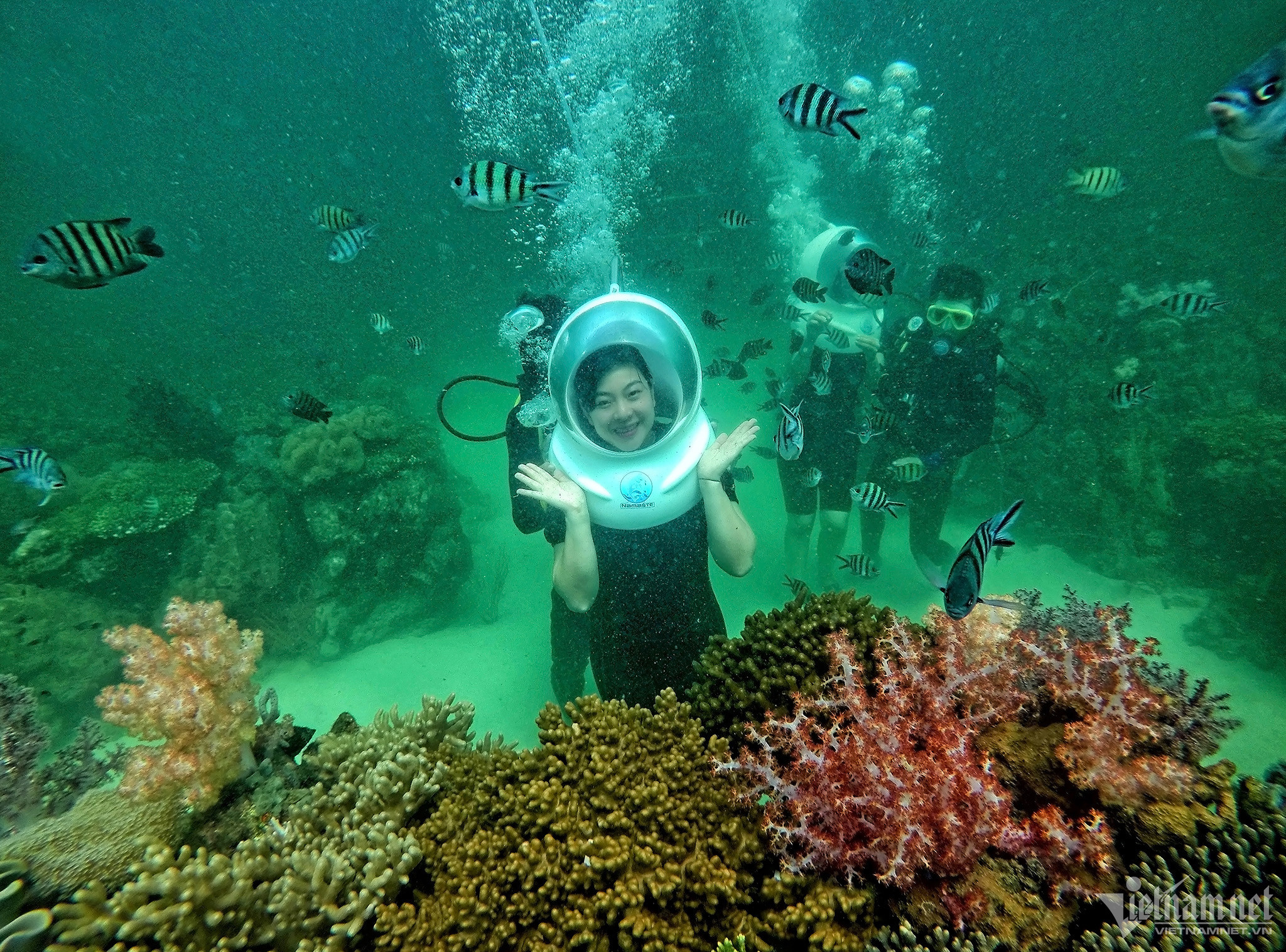
Phu Quoc is among the places with the most beautiful corals in the world with up to 480ha of over 360 species of hard corals and dozens of types of soft corals. The waters of Phu Quoc island have more than 150 species of fish and nearly 100 species of marine algae.
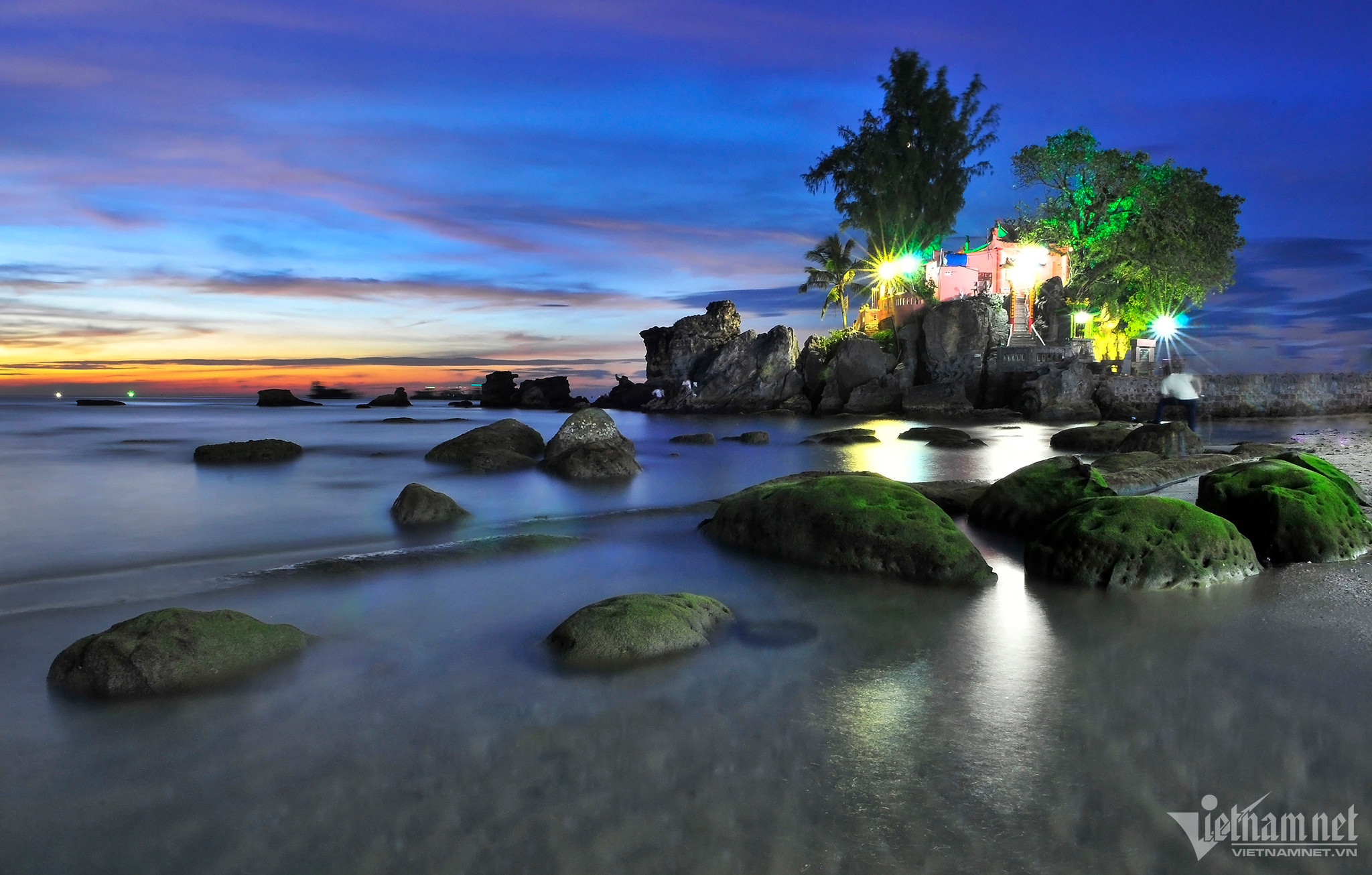
Dinh Cau - a famous destination in Phu Quoc in the sunset.
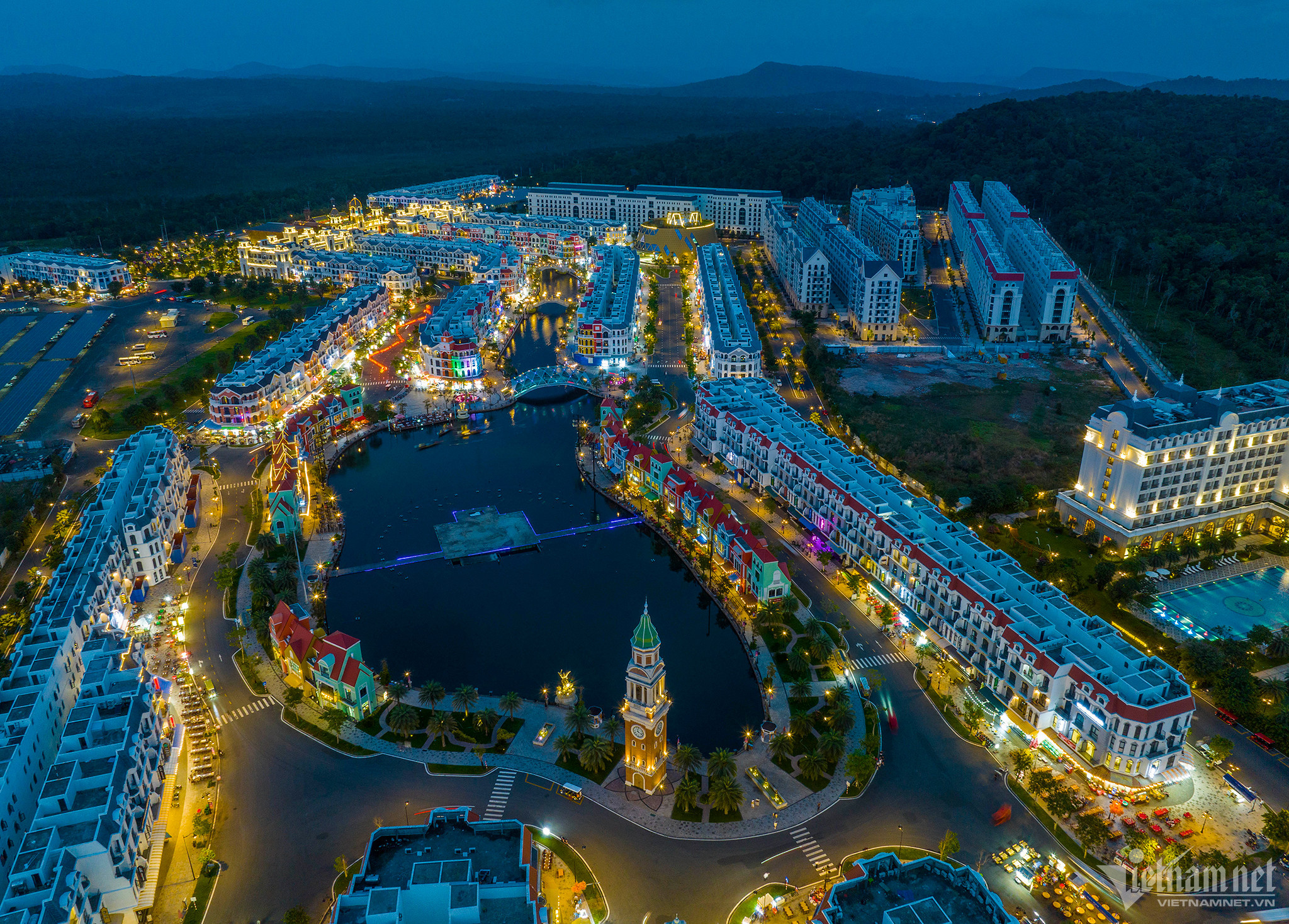
Phu Quoc has had 286 tourism projects (accounting for 86% of tourism projects in Kien Giang province). Many projects have been put into operation, creating a new and dynamic appearance for Kien Giang’s tourism industry.
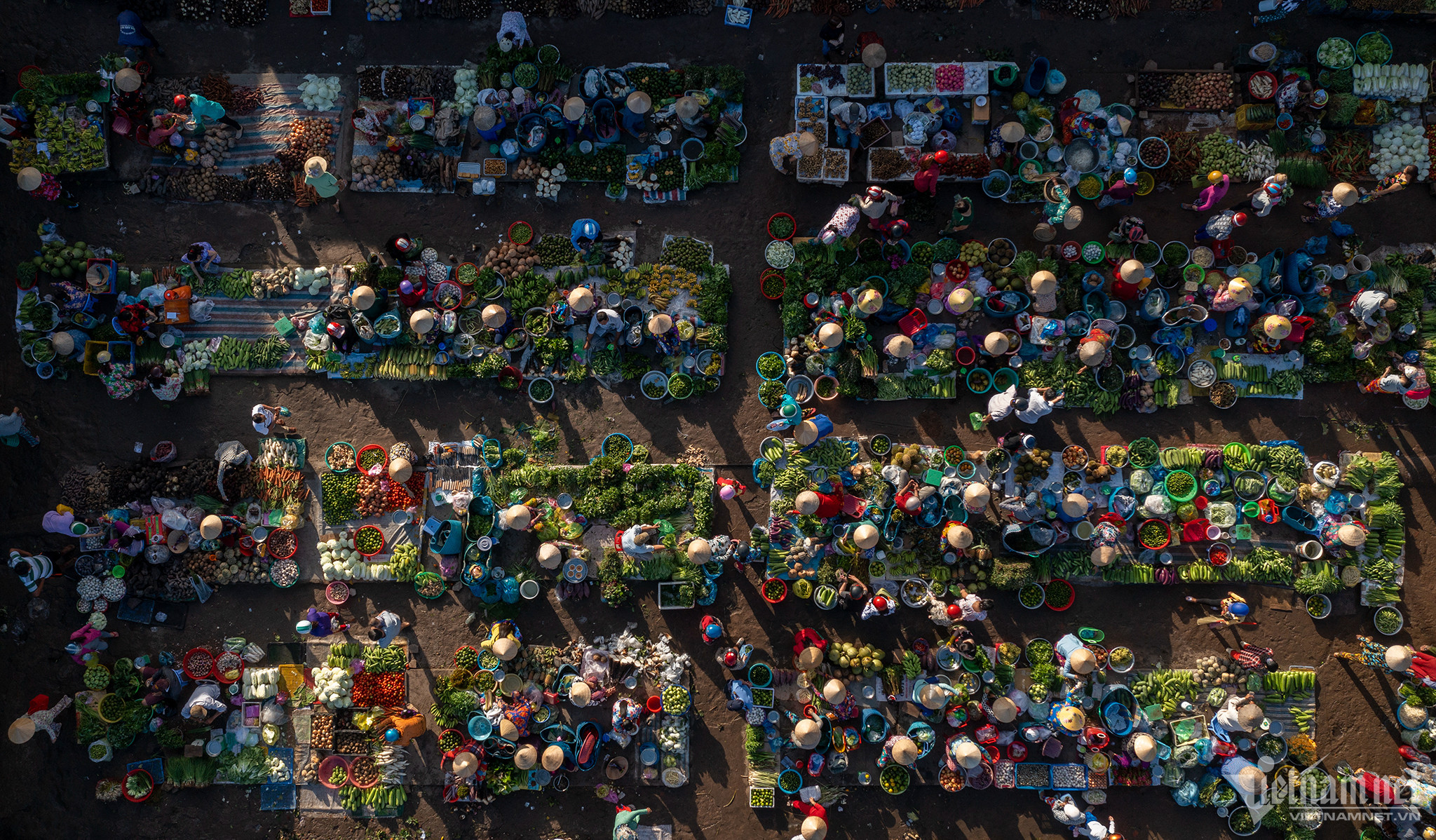
Vi Thanh agricultural market is located in Ward 1, Vi Thanh City, Hau Giang Province. This market is where rural people bring agricultural products from the fields to sell.
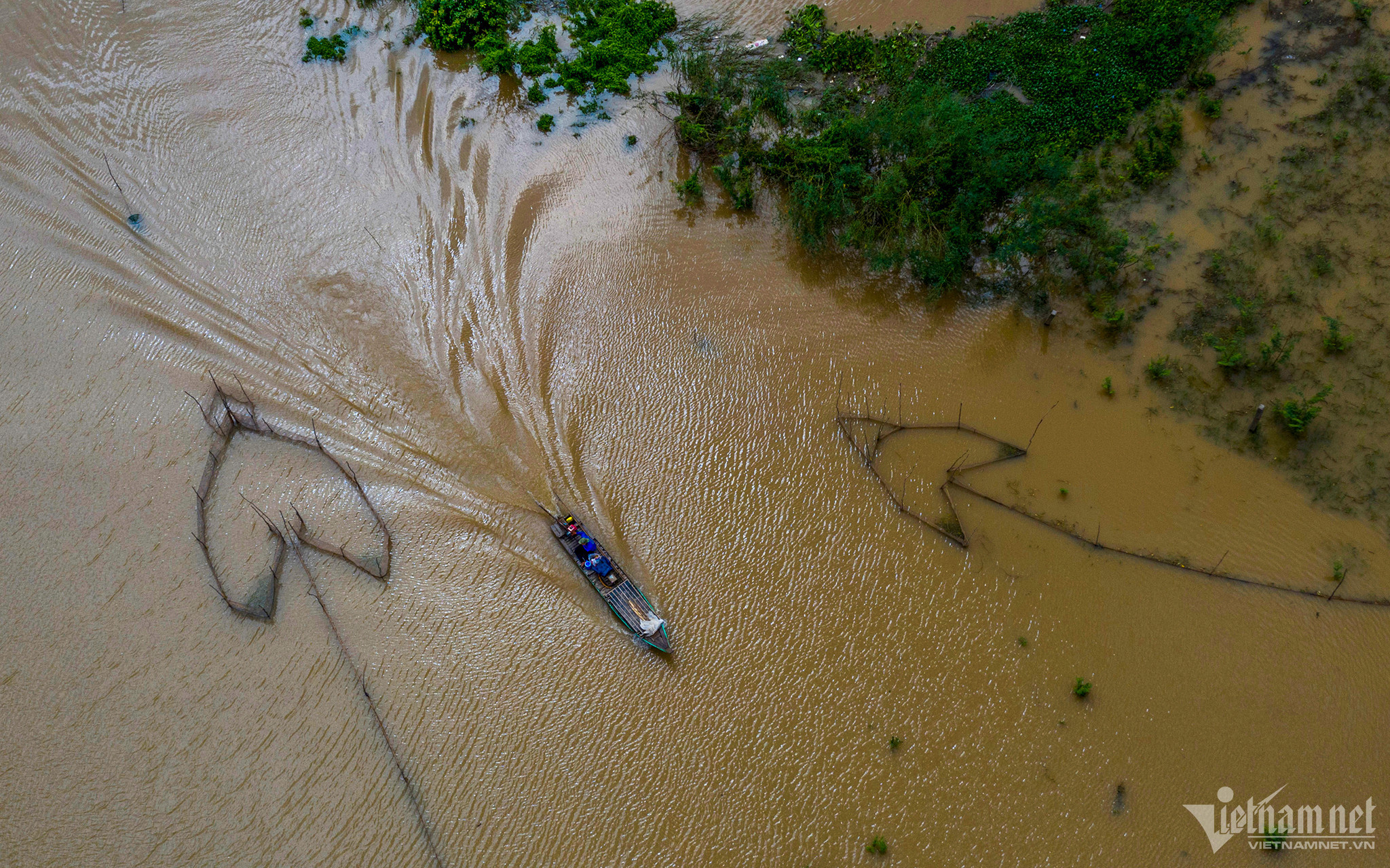
In July - October of the lunar calendar every year, water from the upper reaches of the Mekong River flows to the southwestern provinces, especially in the provinces of Dong Thap, An Giang, and Kien Giang. At this time, the fields are flooded, and this is the time for many typical activities of the flood season.
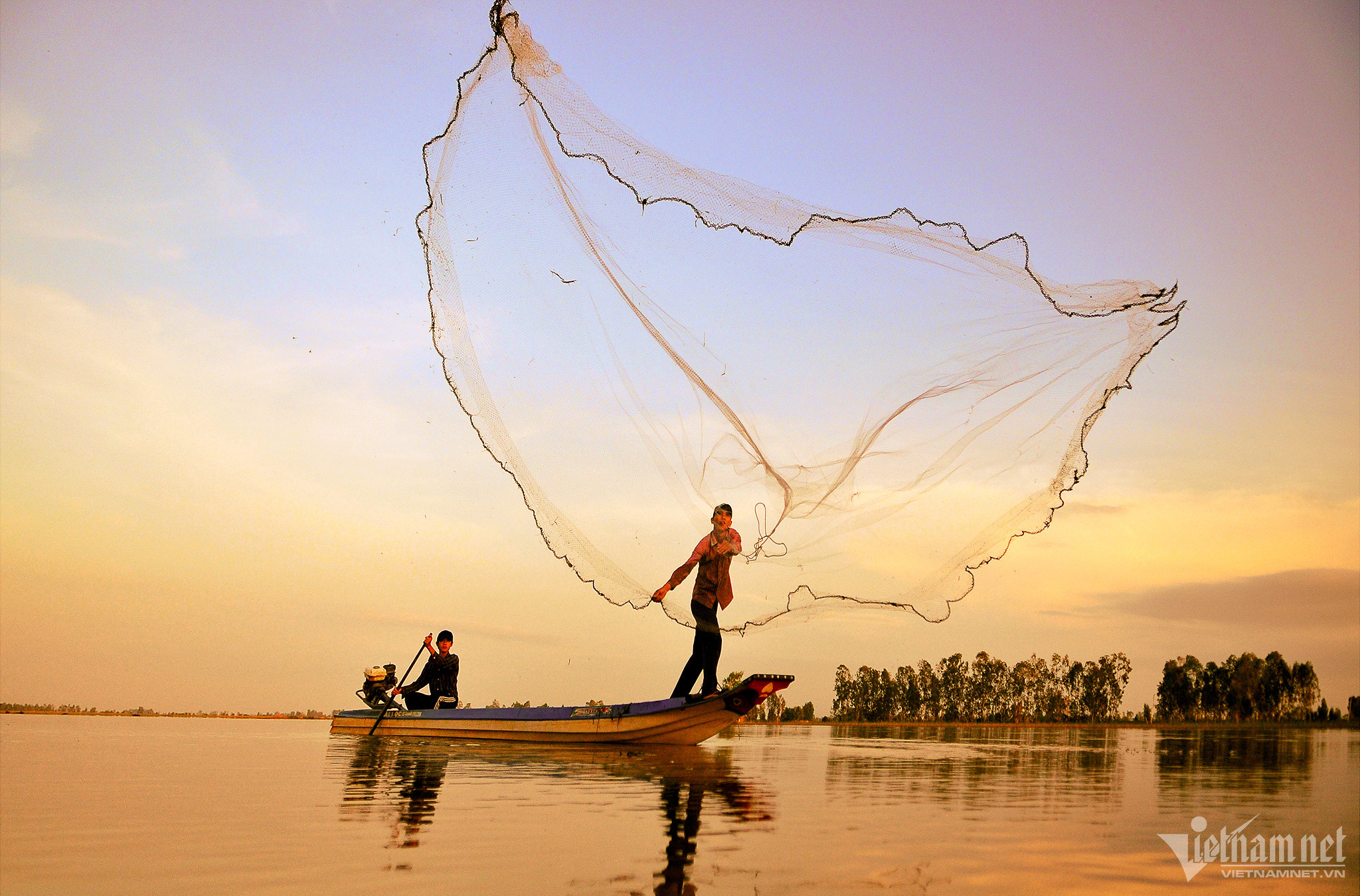
Local people make a living by fishing in the fields during the flood season.
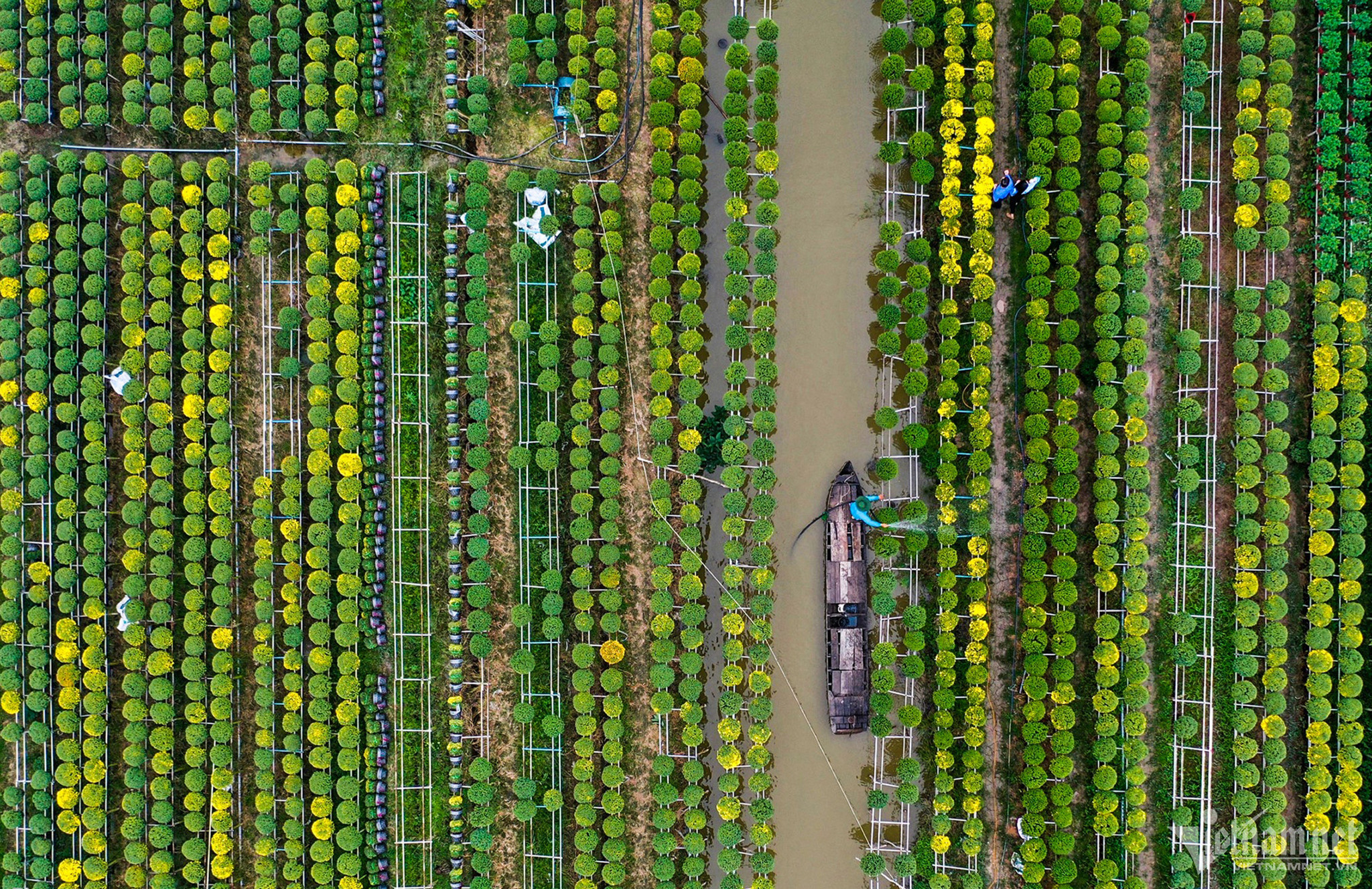
Sa Dec flower village in Sa Dec city, Dong Thap province is known as the "Kingdom of ornamental flowers". With an area of over 100 hectares and nearly 2,000 varieties of flowers, the village provides about 2 million pots of flowers to the market each Lunar New Year. Sa Dec flower village is also one of the most popular tourist attractions in Dong Thap province.
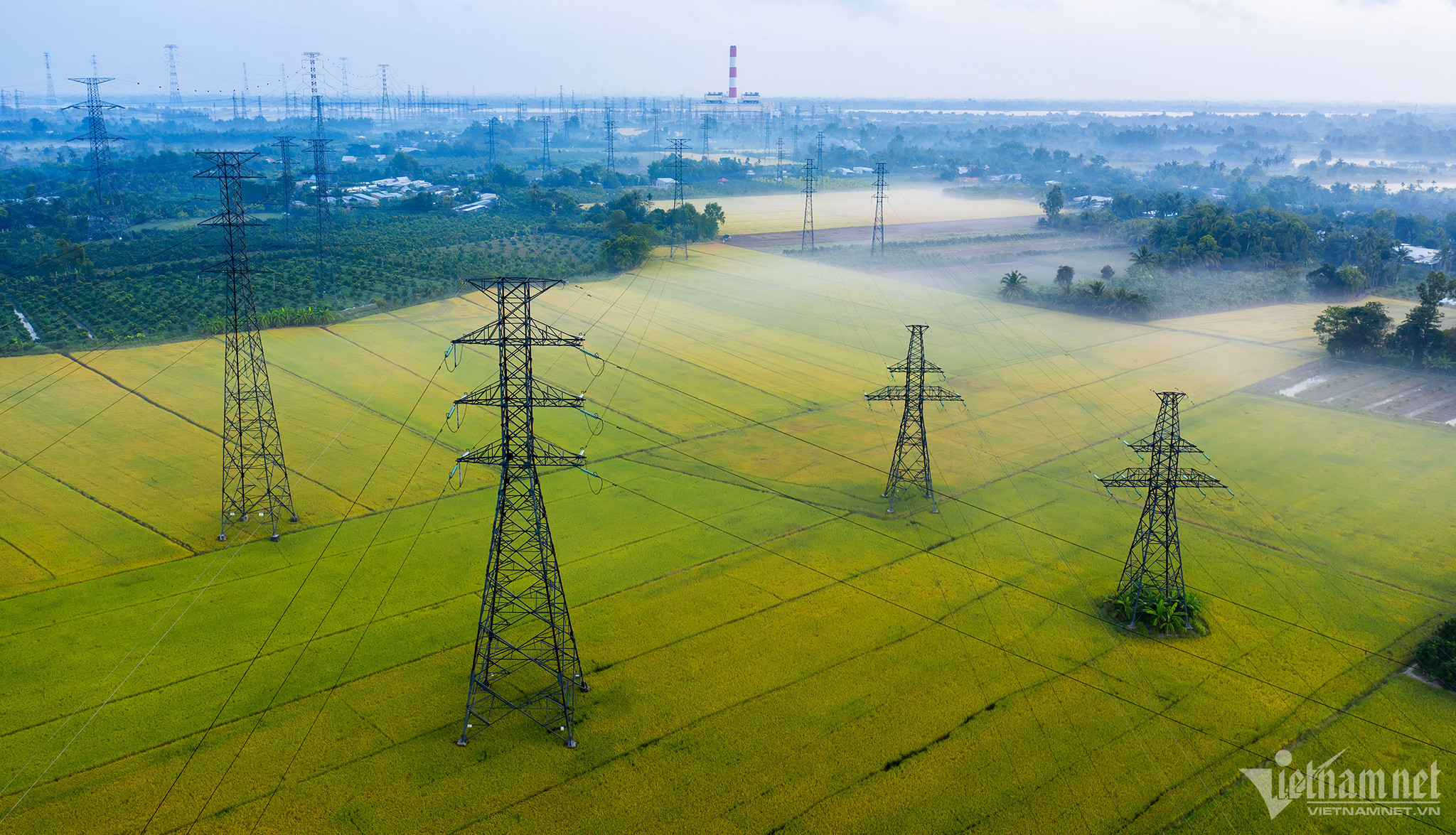
The Southwest region is the rice bowl of the country, with about 700,000 hectares. Photo: Tran Minh Luong.
Hoang Giam